Nearly a year after Ford announced its EV plans in Marshall, here's what's transpired
It's been nearly a year since Ford Motor Company announced its plans to build an electric vehicle battery plant near Marshall.
The investment, touted by economic development officials as a game-changer for the city, the region and the state, has drawn pushback from a number of local residents who believe the large-scale industrial development fails to align with their small town community.
Here's a look at what's happened since the automaker announced its plans to invest in Marshall:
2023

Feb. 13: In a press conference at Ford Ion Park in Romulus, Ford Motor Company announces plans to invest $3.5 billion to build an electric vehicle battery plant near Marshall. The plant, BlueOval Battery Park, is expected to create roughly 2,500 jobs when production of lithium iron phosphate batteries begins in 2026. It will be built on 950 acres of the Marshall Megasite, a nearly 2,000-acre parcel near the Interstate 94/69 interchange that local and state officials have been prepping and marketing for large-scale development for many years.
Ford further announces it will license LFP battery cell technology from China-based Contemporary Amperex Technology Co. Ltd (CATL). The Michigan Strategic Fund approves an incentive package worth more than $1 billion to support the project. Approved incentives include a $210 million grant from the state's Strategic Outreach and Attractive Reserve (SOAR) fund and a Michigan Strategic Fund Designated Renaissance Zone valued at $772 million that will reduce real and personal property taxes for a period of 15 years.
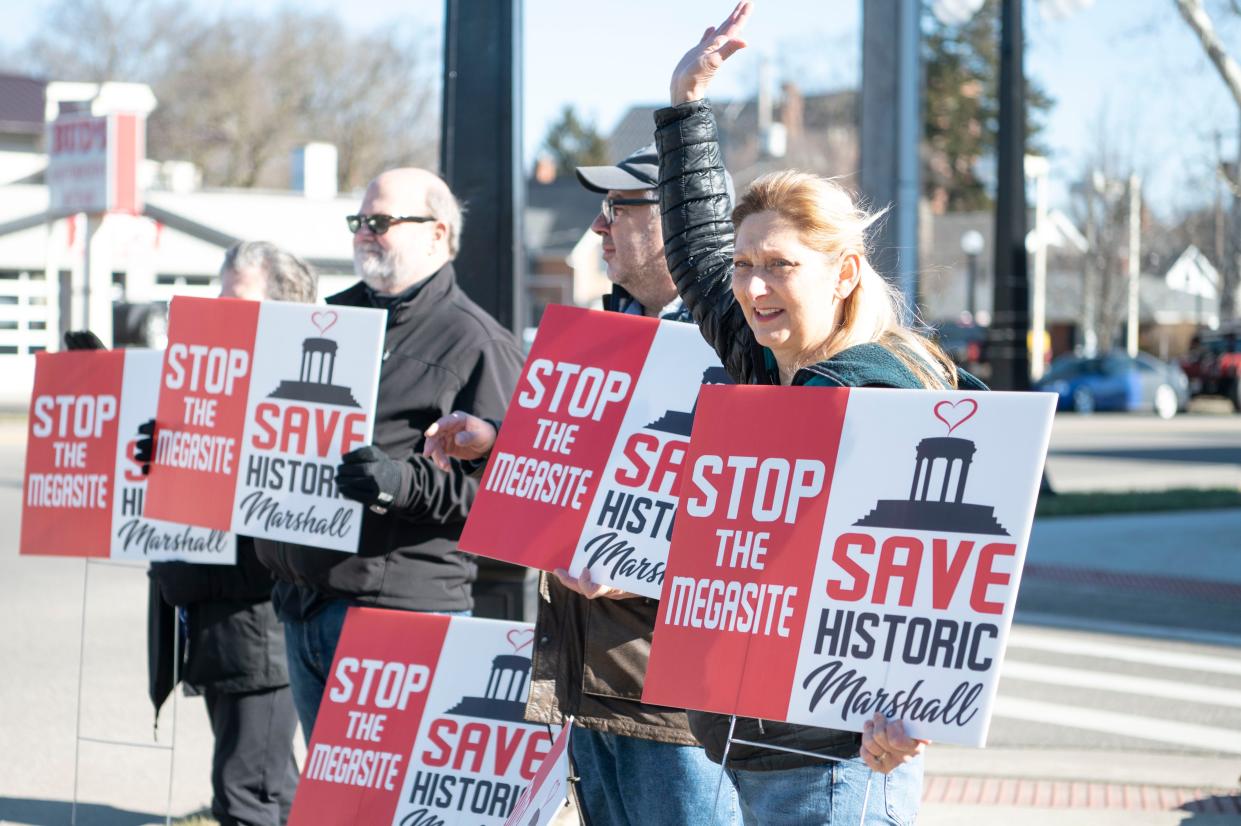
Outside Marshall City Hall, several residents gather to protest development of the megasite.
April 25: After nearly two hours of discussion, the city of Marshall and Marshall Township Joint Planning Commission votes 4-2 against rezoning 741 acres of the Marshall Megasite to Industrial and Manufacturing (I-3) Zoning to accommodate BlueOval Battery Park Michigan.
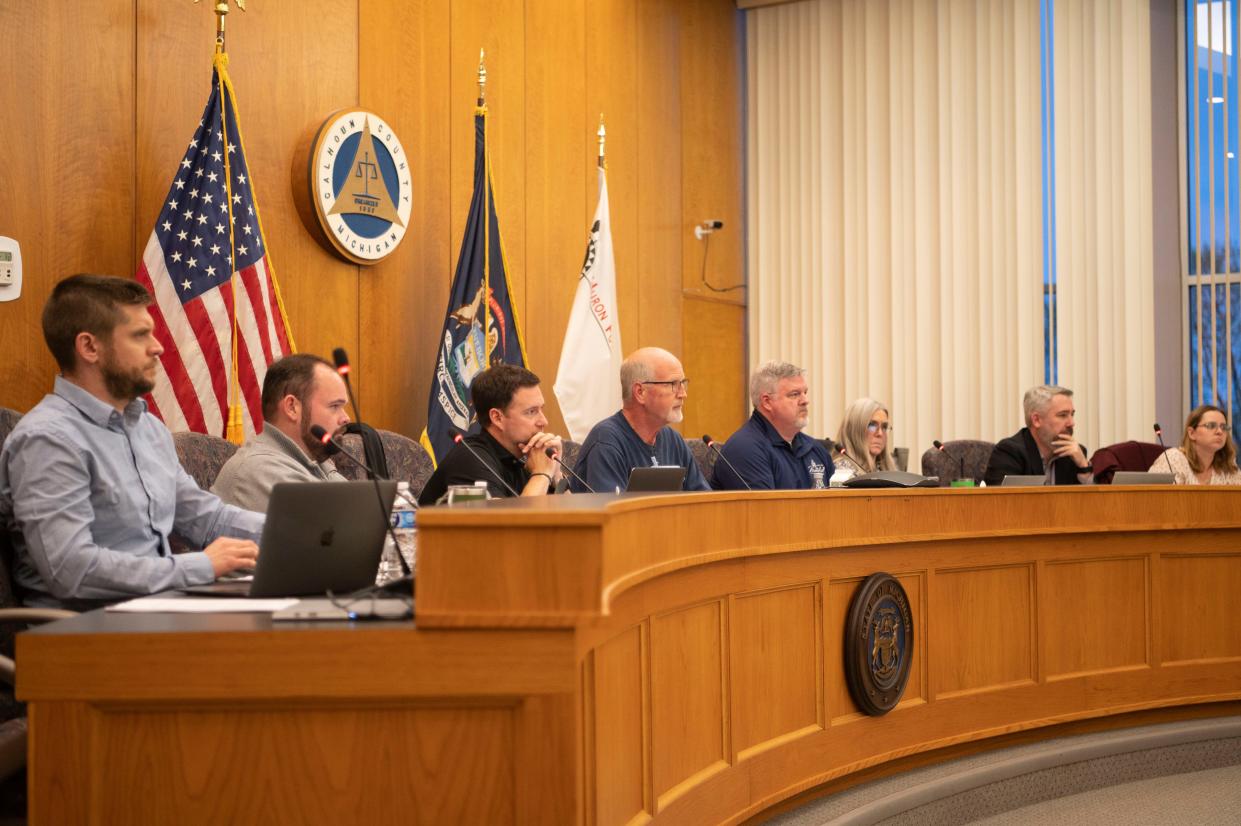
May 1-2: Marshall City Council members vote unanimously to rezone the 741-acre parcel of the Marshall Megasite to Industrial and Manufacturing (I-3) Zoning in support of BlueOval Battery Park Michigan. The vote comes after nearly five hours of public comment from residents for and against the project.
May 30: A group of Marshall area residents dubbed "The Committee for Marshall — Not the Megasite" submits more than 800 petition signatures to Marshall City Clerk Michelle Eubank in hopes of triggering a city-wide vote on the rezoning tied to Ford's EV battery plant. The number of signatures collected is well above the 10% threshold of about 580 signatures required by the city charter. City officials indicate they have 20 days to determine the validity of petition signatures.
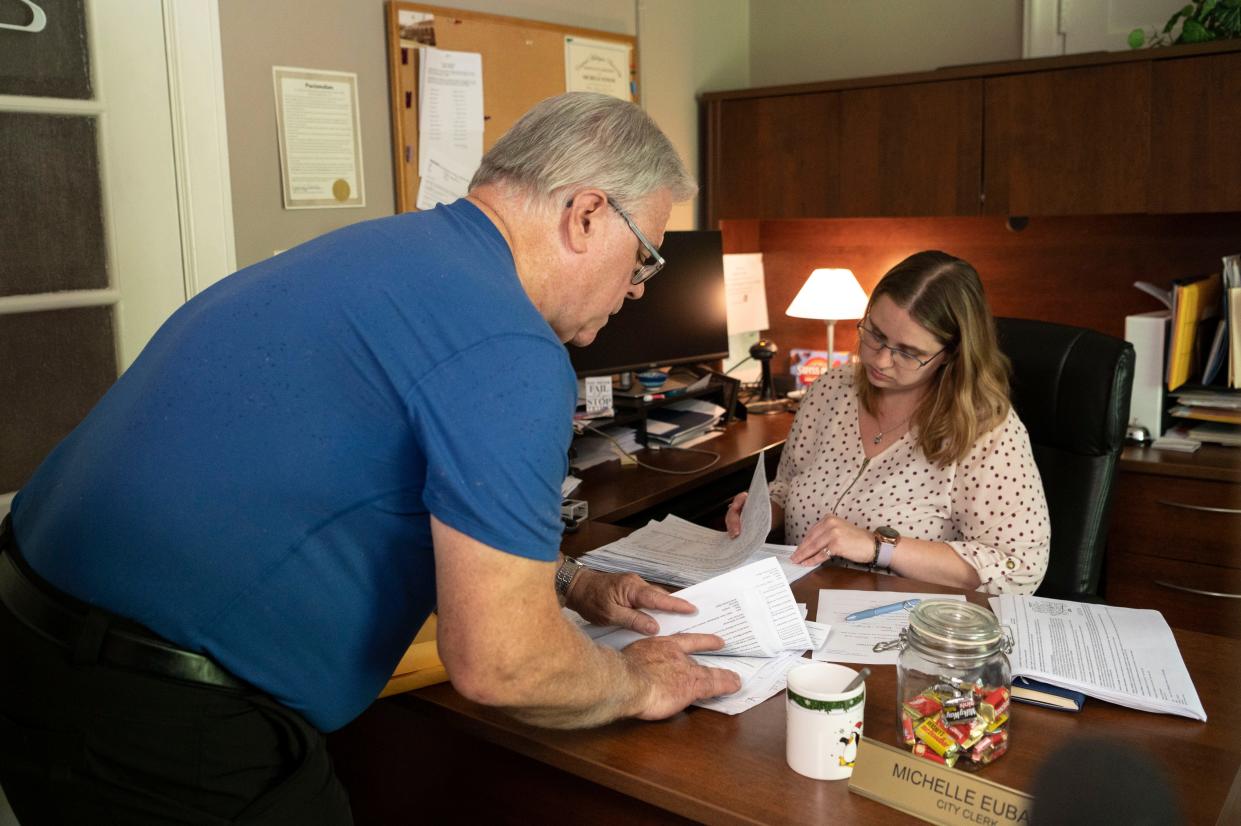
June 16: In a letter, Eubank indicates the targeted ordinance, in this case the rezoning of 741 acres of the Marshall Megasite, is not subject to a referendum or vote because the ordinance amendment approved by the city council included appropriations of $40,000 for site plan review services and $250,000 for building inspection services for the development of the proposed project. Such appropriations make the ordinance amendment ineligible for referendum under Article V, Section 5.01(b) of the city charter.
Eubank adds the petition lacks the minimum number of valid signatures to place the measure on the ballot, in large part because the bulk of signatures were obtained by circulators that were not part of the five-member petition committee. Committee members claim they are unaware of this requirement and argue the city charter does not explicitly state that only committee members can collect signatures.
June 20: The Marshall City Council upholds the clerk's ruling of insufficiency. The committee announces plans to take legal action.
June 27: The Committee for Marshall — Not the Megasite files a lawsuit against the city and Eubank in Calhoun County Circuit Court after its petition for a city-wide vote was denied by Eubank two weeks earlier. The lawsuit asks the court for an order to direct Eubank to immediately issue a certificate of sufficiency on the referendum petition, and to suspend Ordinance # 2023-08 — which effectively rezones 741 acres of the Marshall Megasite in support of the Ford project — as required by the city charter.
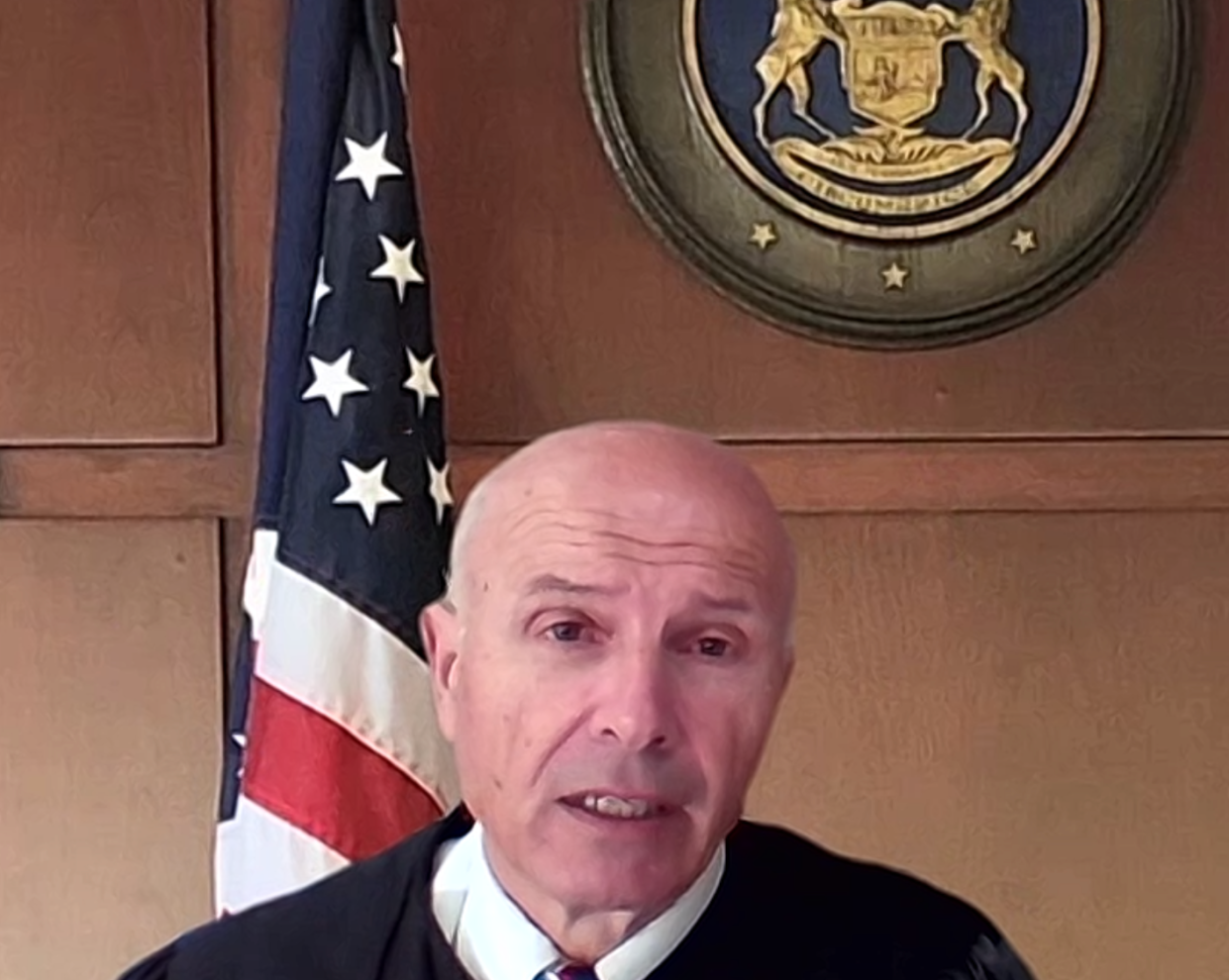
July 12: Visiting Judge William Marietti grants a request by the Marshall Area Economic Development Alliance (MAEDA) to intervene in the lawsuit as a defendant, citing the organization's unique interest in the case as the current property owner of the land subject to the rezoning. Similar requests to intervene made by the Michigan Economic Development Corporation, Michigan Strategic Fund, Marshall Citizens for Jobs and Opportunity and Ford are denied.
July 17: Marietti denies the Committee for Marshall — Not the Megasite's request for a preliminary injunction on the rezoning, indicating several city and state laws likely prevent the committee's efforts to challenge the rezoning through referendum as the ordinance included an appropriation of money. The judge's decision allows site preparation on the 741 acres of the Megasite to continue.
Sept. 14: After hearing both sides' respective arguments for summary disposition, Marietti dismisses the complaint by the Committee for Marshall — Not the Megasite aimed at halting construction of the battery plant, noting the ordinance targeted by the committee correctly included an appropriation of money, which prohibits it from being subject to a referendum. The judge’s decision to dismiss the complaint also notes the committee's petition for a city-wide vote on a rezoning request tied to the project fails to follow provisions laid out in the Marshall City Charter.
The judge's decision marks a dismissal of the complaint, but not a dismissal of the case as petitioners have the opportunity to amend their pleadings. The committee subsequently submits its amended complaint with two new claims and additional facts, namely that the city "failed to provide proper notice of the ordinance amendment under City Charter section 4.02," and that the city "cannot rezone an area the Joint Planning Commission has refused to rezone."
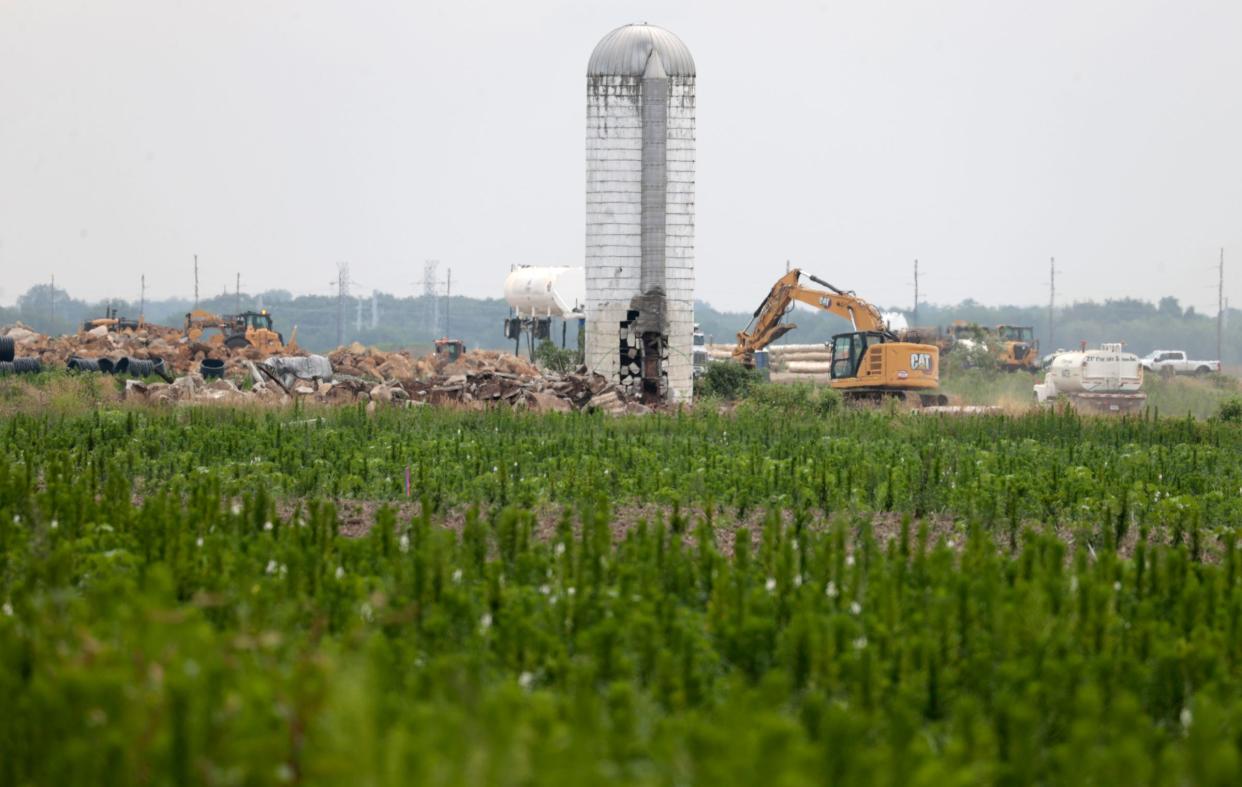
Sept. 25: Ford announces it is "pausing work" on BlueOval Battery Park Michigan “until we’re confident about our ability to competitively operate the plant.” The announcement comes during the second week of a UAW strike on the Detroit Three automakers.
Sept. 26: The Michigan Strategic Fund board approves a $65 million Strategic Site Readiness Program performance-based grant for MAEDA that will support "land acquisition, site studies and preparation, water and wastewater upgrades, road enhancements, professional fees, administration and other necessary public infrastructure improvements" on roughly 800 acres of what's been dubbed the Marshall Area Jobs, Opportunities and Recreation (MAJOR) campus (formerly known as the Marshall Megasite). The vote comes less than 24 hours after Ford announced it would be "pausing work" on a multibillion dollar electric vehicle battery plant on the eastern portion of the site.
Nov. 21: Ford reduces its commitment to the Marshall-area EV battery facility by 800 jobs and more than $1 billion, moves company officials say will reduce the plant's production capacity by roughly 40%. State officials say incentives for the project will likewise we revised in accordance with the new investment parameters.
2024
Jan. 10: Marietti dismisses the amended complaint from the Committee for Marshall — Not the Megasite, finding the additional arguments were not persuasive. Committee members plan to appeal the decision.
Contact reporter Greyson Steele at gsteele@battlecreekenquirer.com
This article originally appeared on Battle Creek Enquirer: Ford announced its EV plans in Marshall nearly a year ago. Here's a timeline
